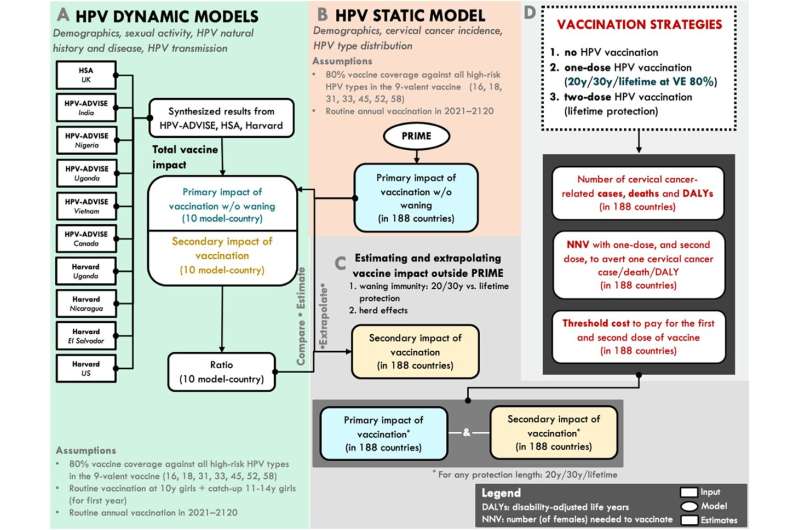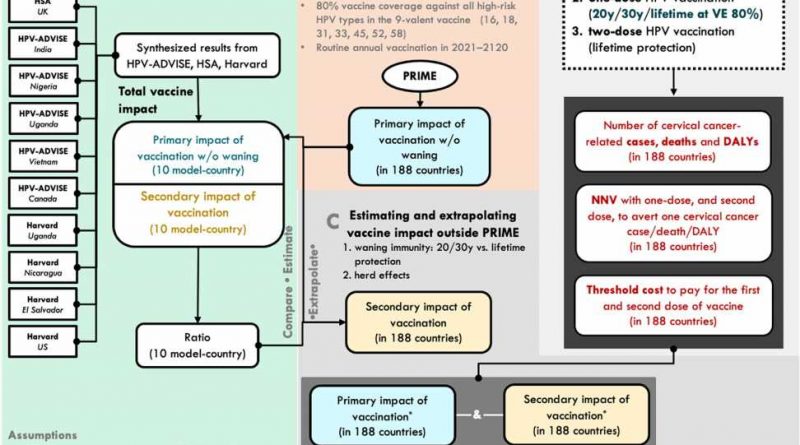Single-dose HPV vaccine effective in preventing cervical cancer globally

Administering one dose of the human papillomavirus (HPV) vaccine in routine immunization programs for adolescent girls would still significantly reduce cervical cancer burden globally, new research suggests.
According to a study published in BMC Medicine, a one-dose human papillomavirus (HPV) schedule has only a small difference in population benefits when compared to a two-dose vaccination schedule.
The authors, including from the London School of Hygiene & Tropical Medicine (LSHTM), believe the findings could have broader policy implications, especially with regard to reducing vaccine inequity globally.
Lead author, Dr. Kiesha Prem from LSHTM, said, “Vaccinating against HPV is highly effective in preventing cervical cancer. Routine HPV vaccination programs typically target adolescent girls between the ages of nine and 14 and there is mounting evidence to show that protection against infections with targeted HPV types continues for more than 15 years.
“Although it’s recommended that all countries immunize adolescent girls with the vaccine, many low- and middle-income countries with high cervical cancer burden have not. This low uptake is driven by financial or programmatic barriers to delivering an additional two vaccinations outside of the established immunization program for infants.
“This is the first study to investigate the global impact of moving from two doses to a single-dose regimen for routine HPV vaccination, using modeling analysis that considers varying epidemiological and demographic profiles across countries.
“Our analysis demonstrates that a one-dose HPV vaccination schedule would still protect against cervical cancer substantially. If a one-dose HPV vaccine can confer the same level of protection, it will simplify vaccine delivery and lower cost, potentially enabling more countries to implement routine vaccination and as a result, bridge the health disparity gap by making prevention more accessible to all populations.
“In the UK, it was recently announced that teenagers and other eligible individuals under the age of 25 will now be offered one dose of the HPV vaccine instead of two. Expanding this to a global one-dose vaccination strategy could significantly reduce cervical cancer burden, particularly in resource-constrained regions or regions where achieving high vaccine coverage is challenging.”
More information:
Kiesha Prem et al, Global impact and cost-effectiveness of one-dose versus two-dose human papillomavirus vaccination schedules: a comparative modelling analysis, BMC Medicine (2023). DOI: 10.1186/s12916-023-02988-3
Journal information:
BMC Medicine
Source: Read Full Article
